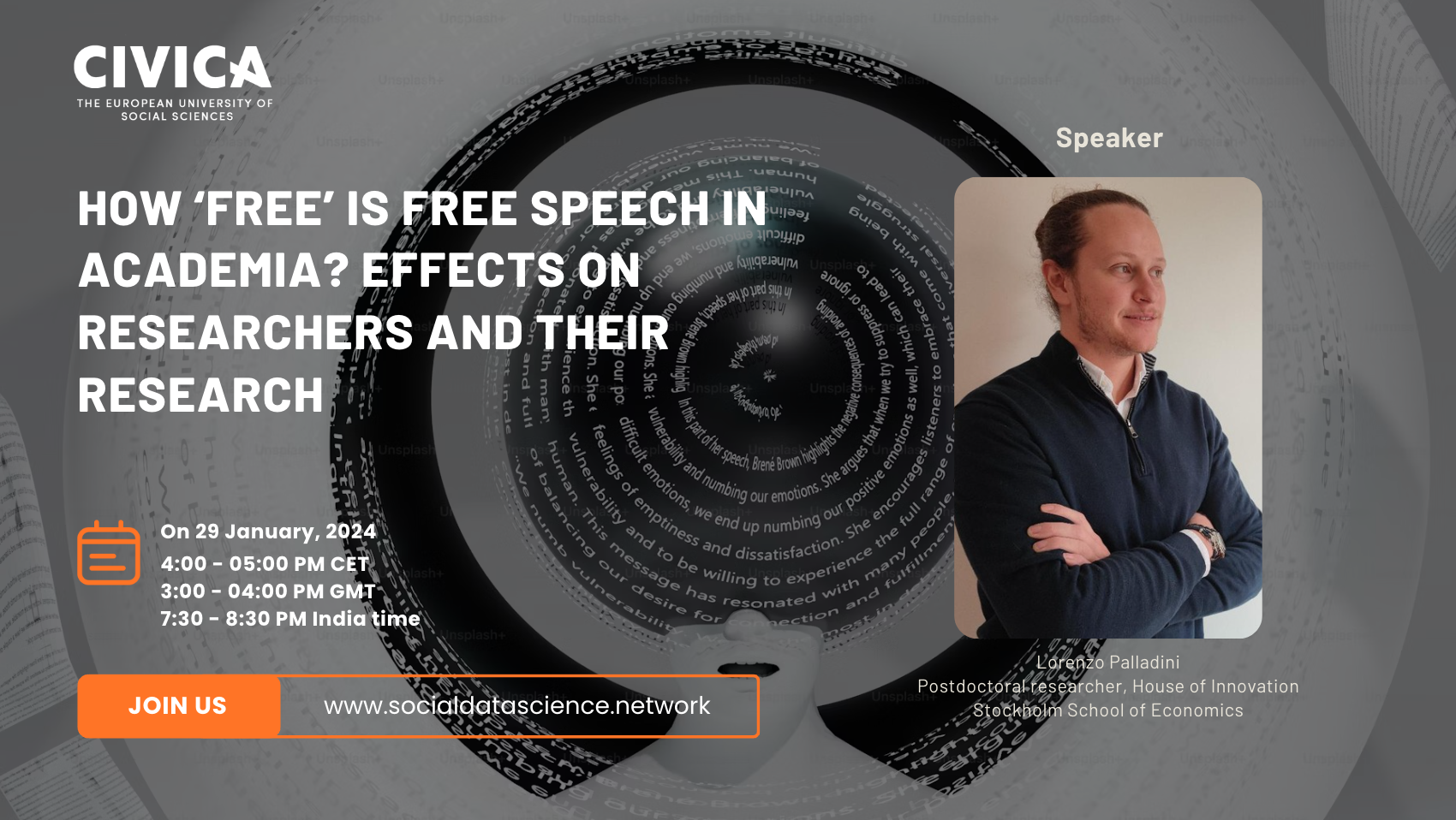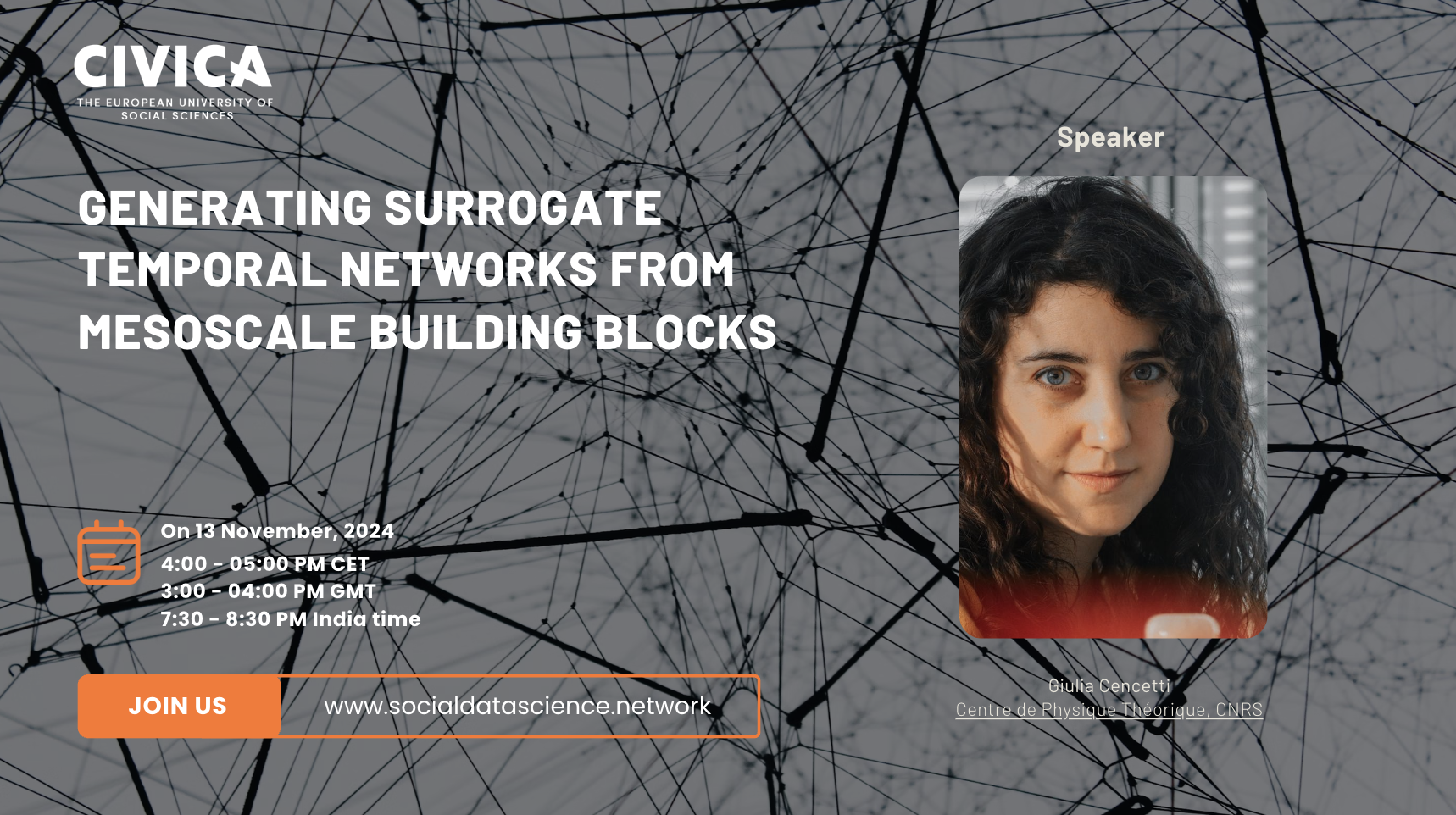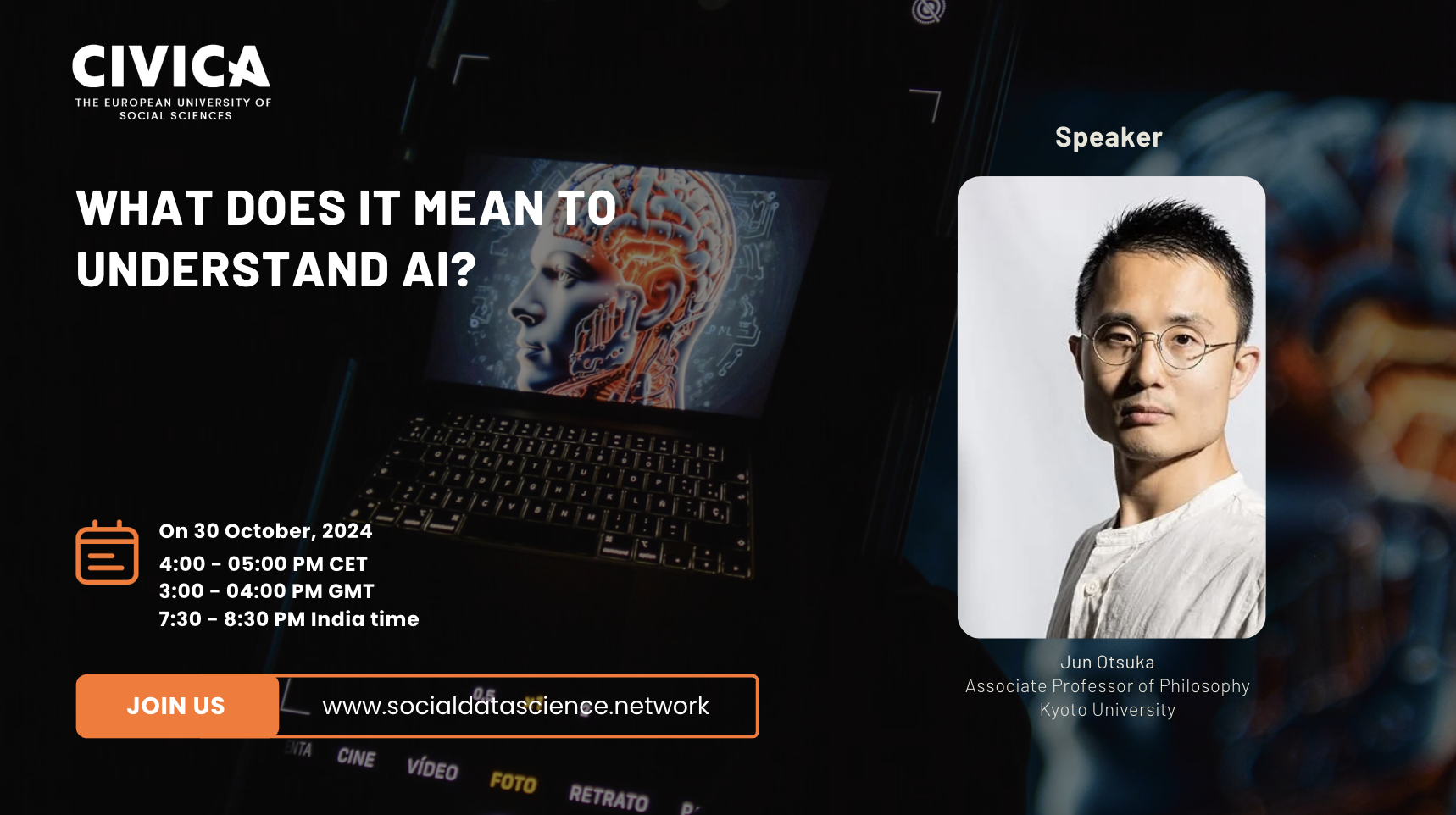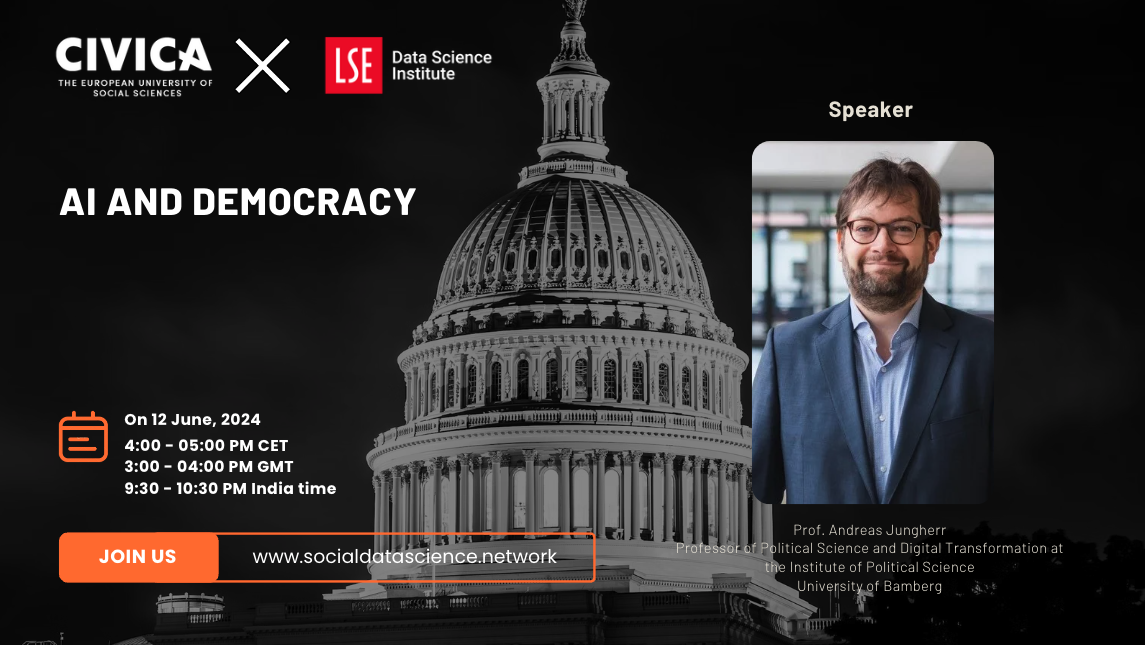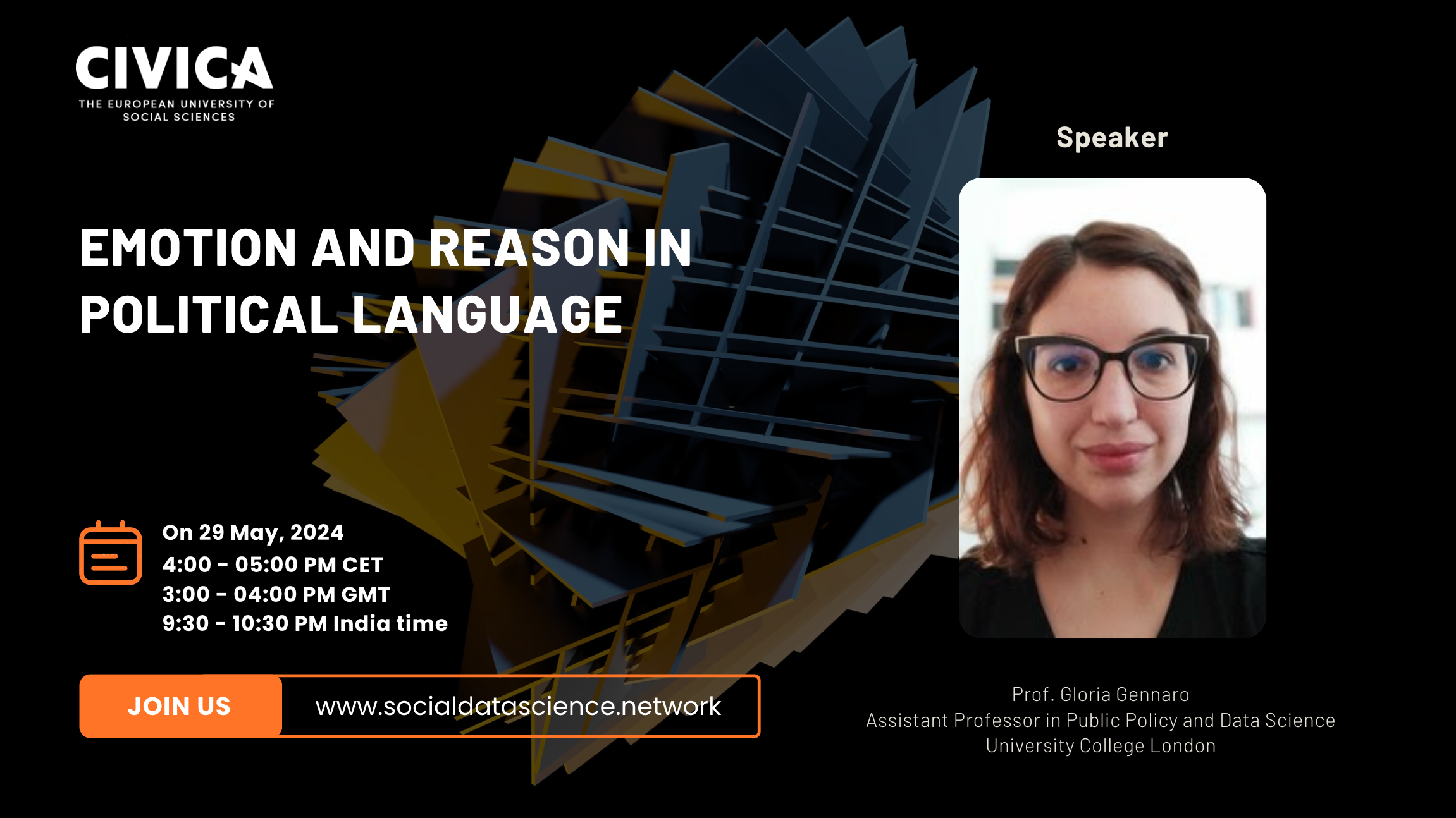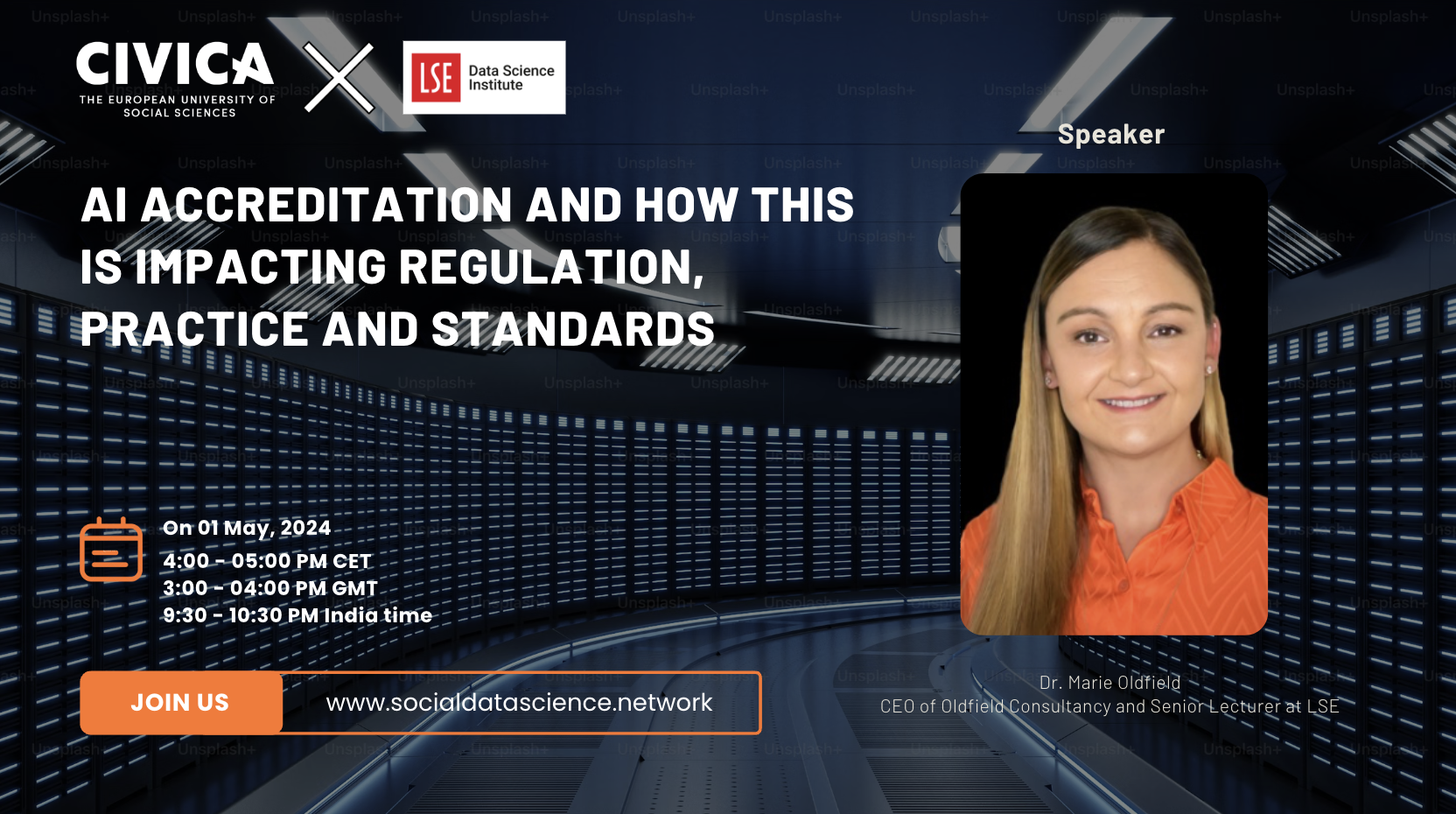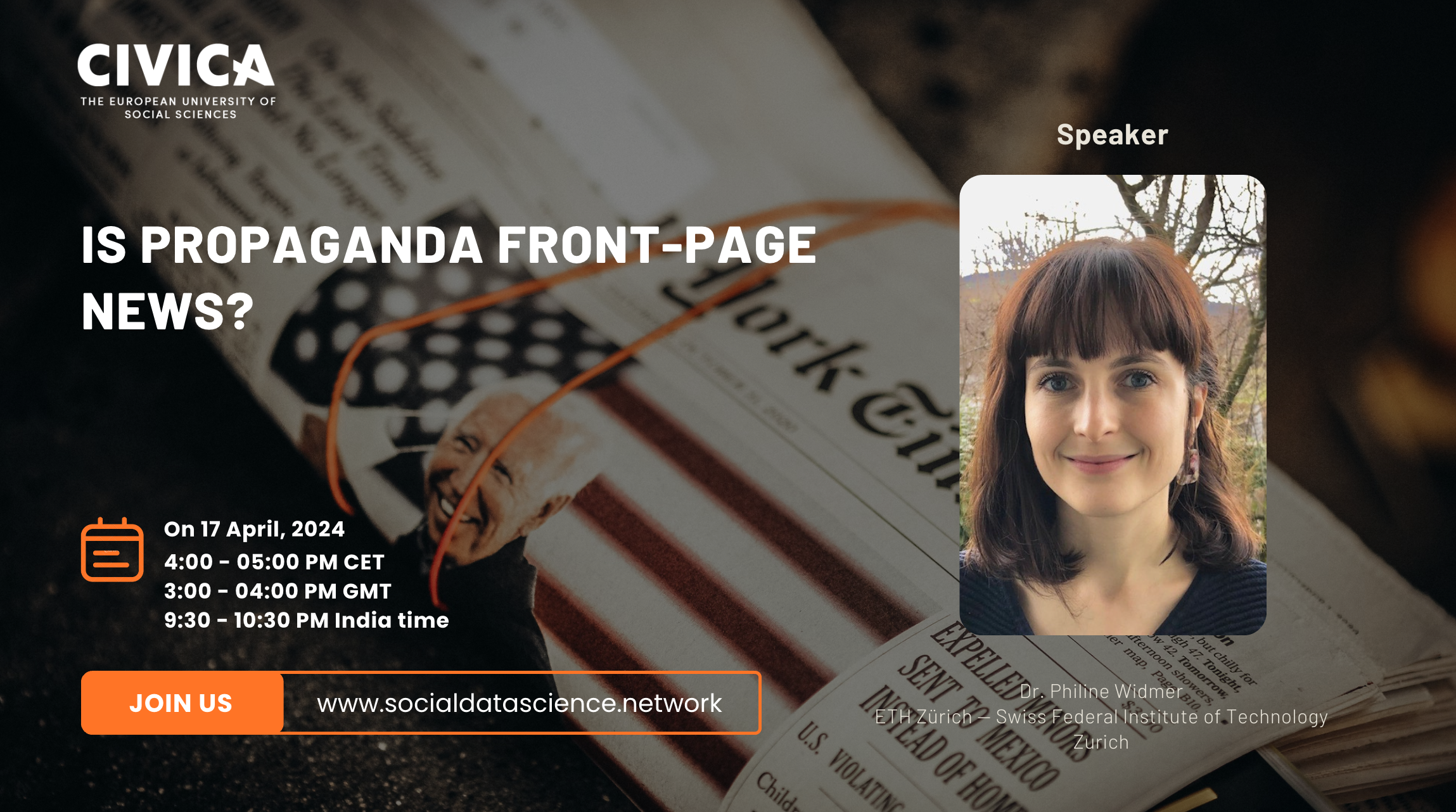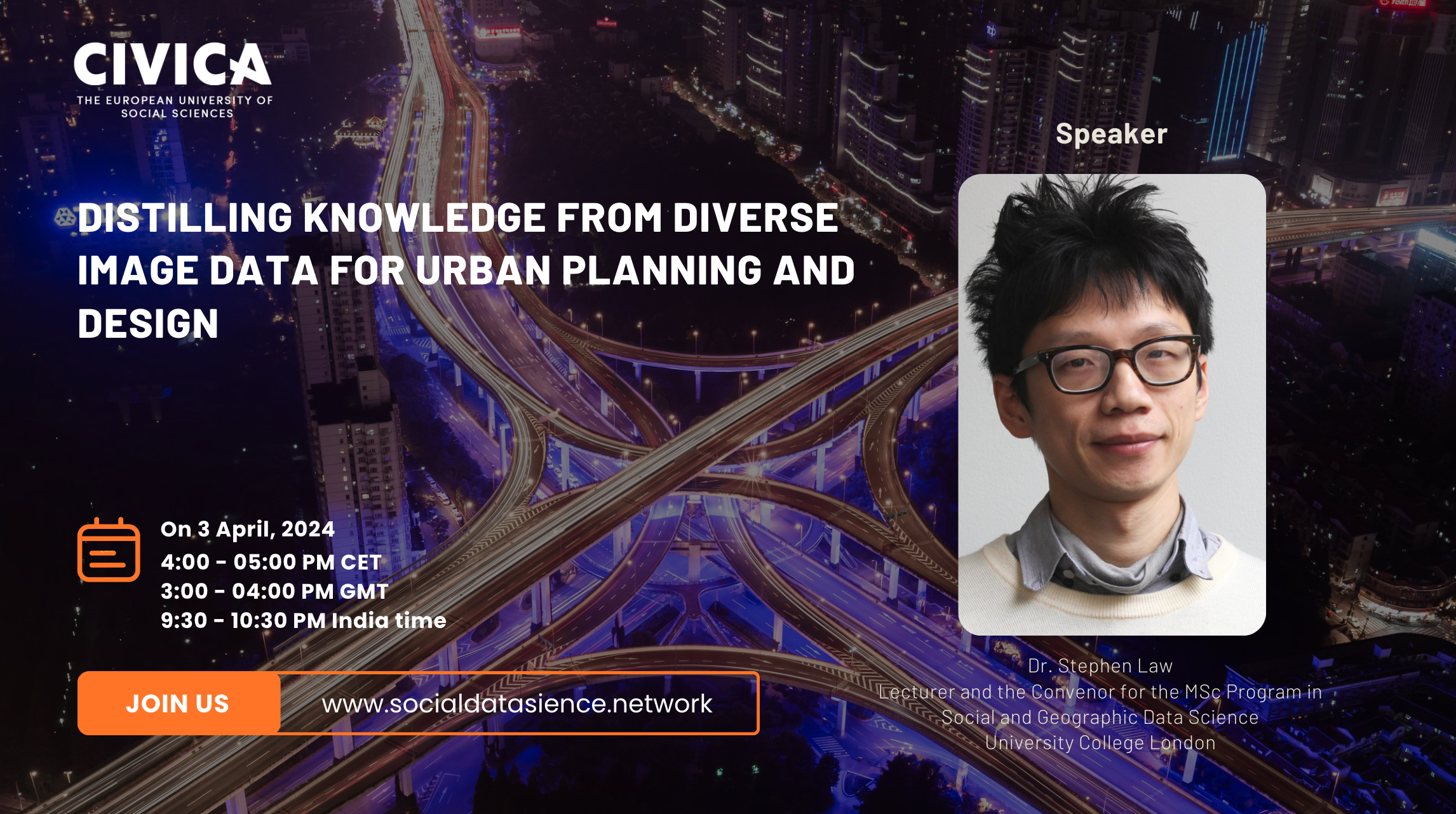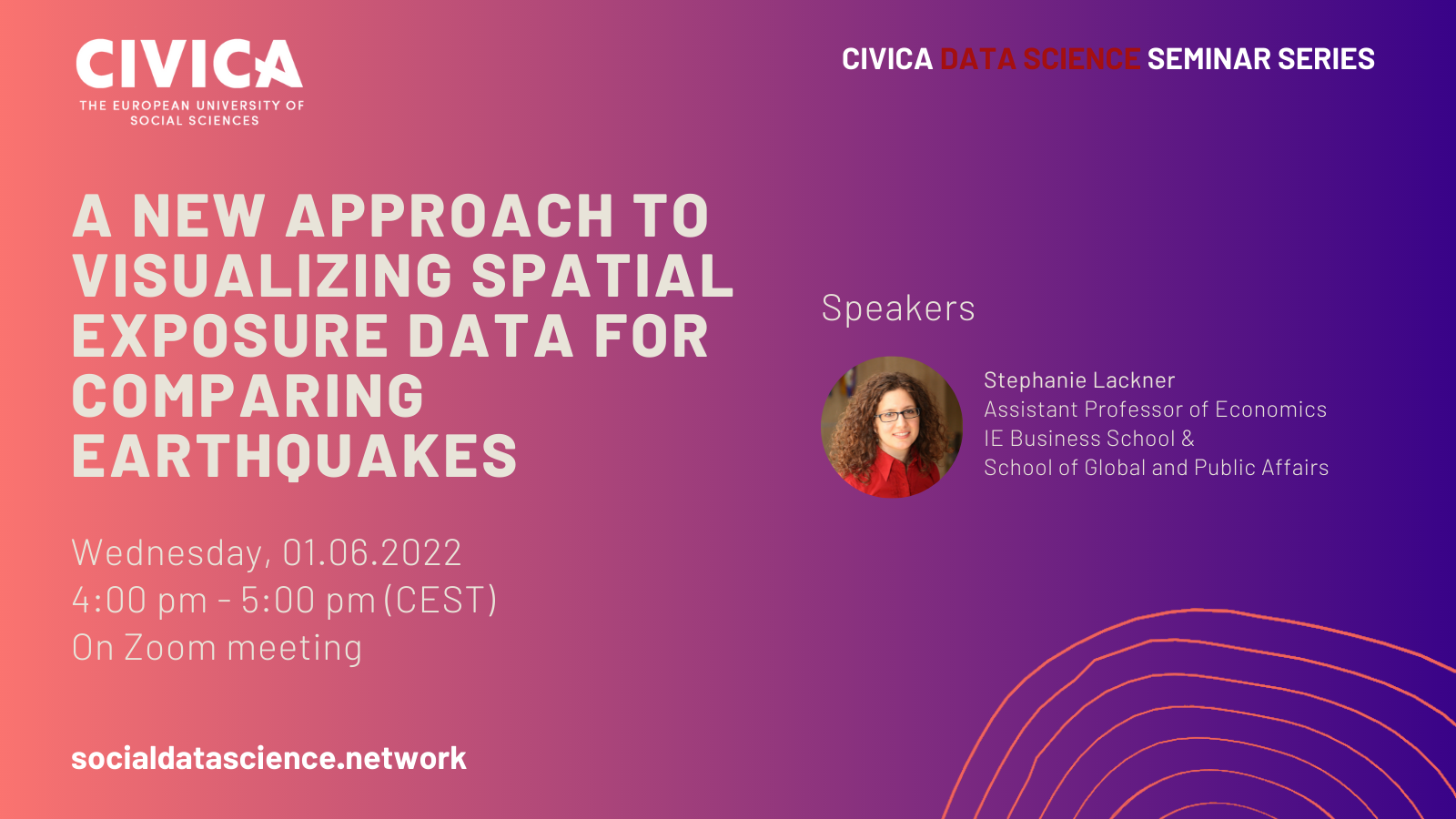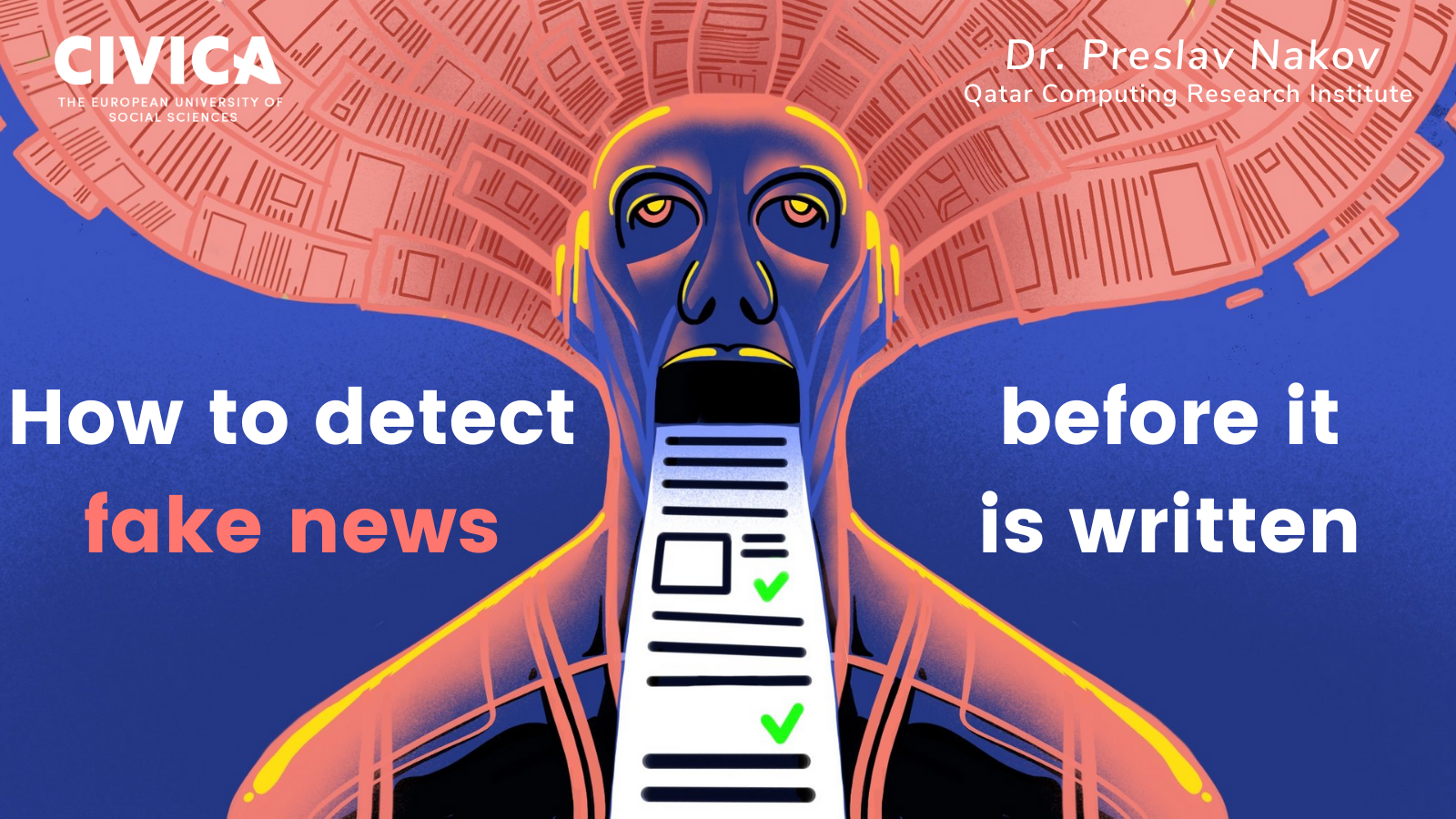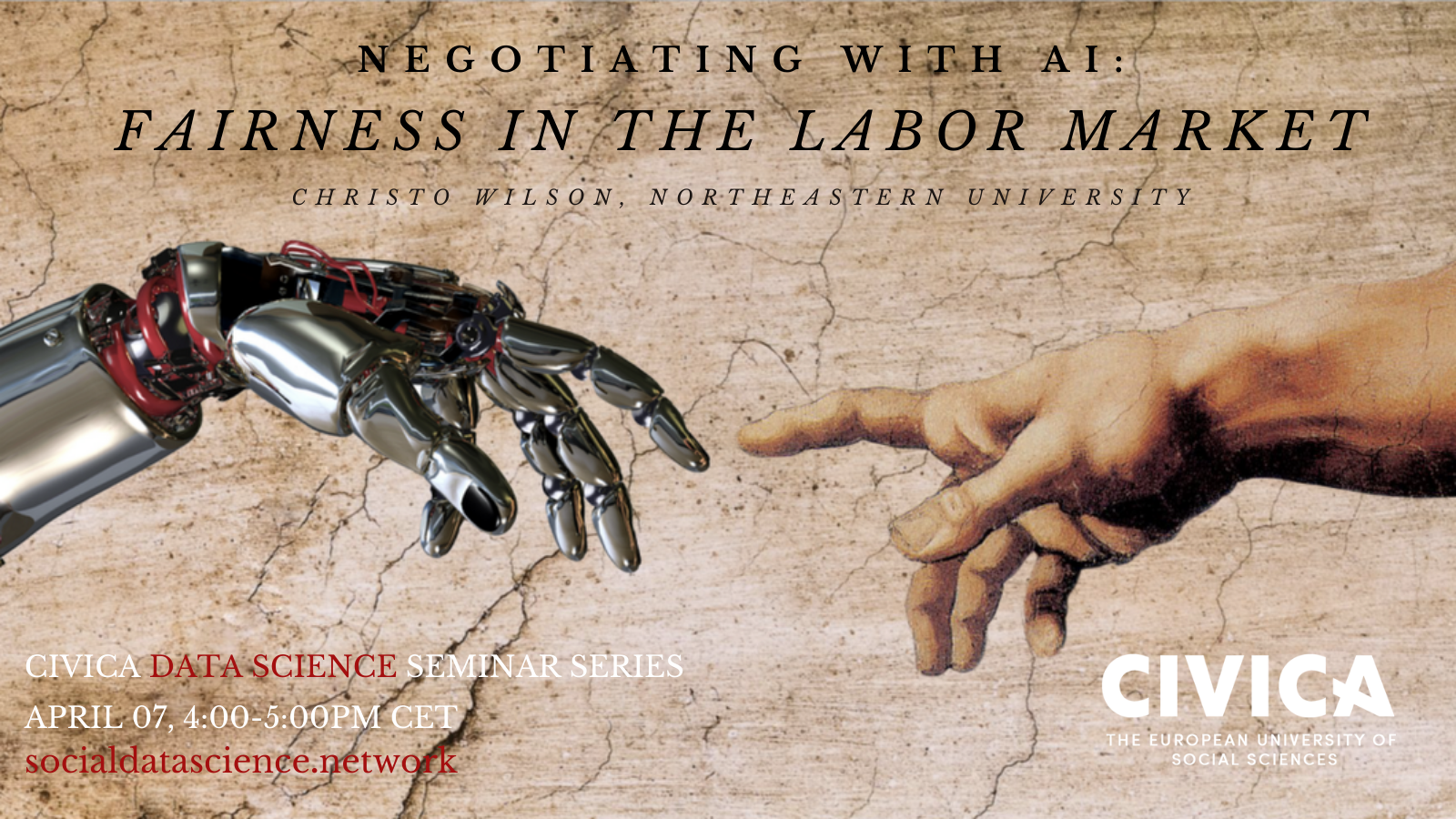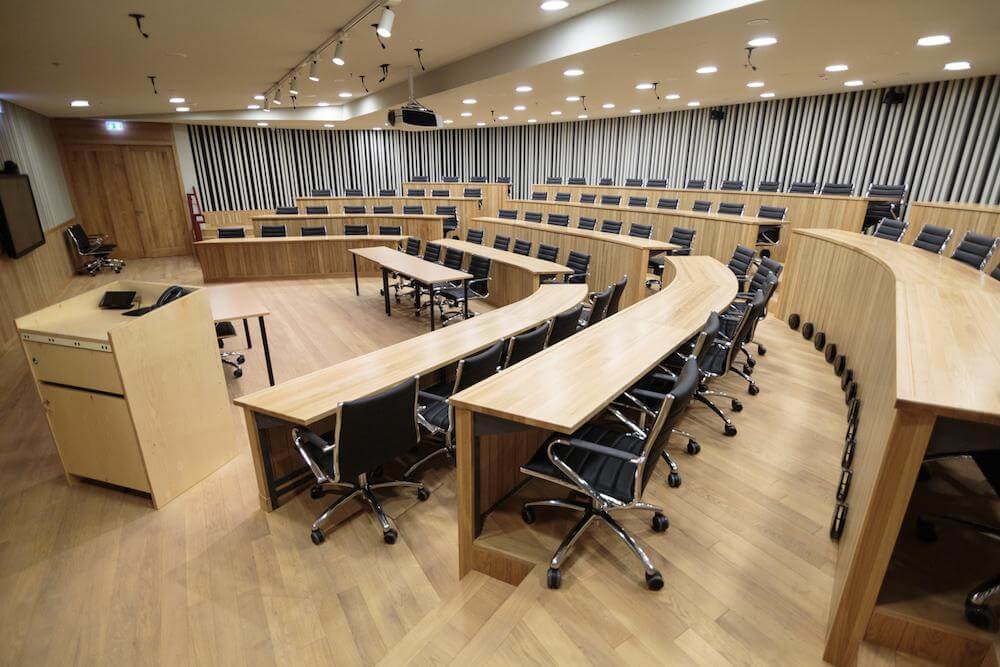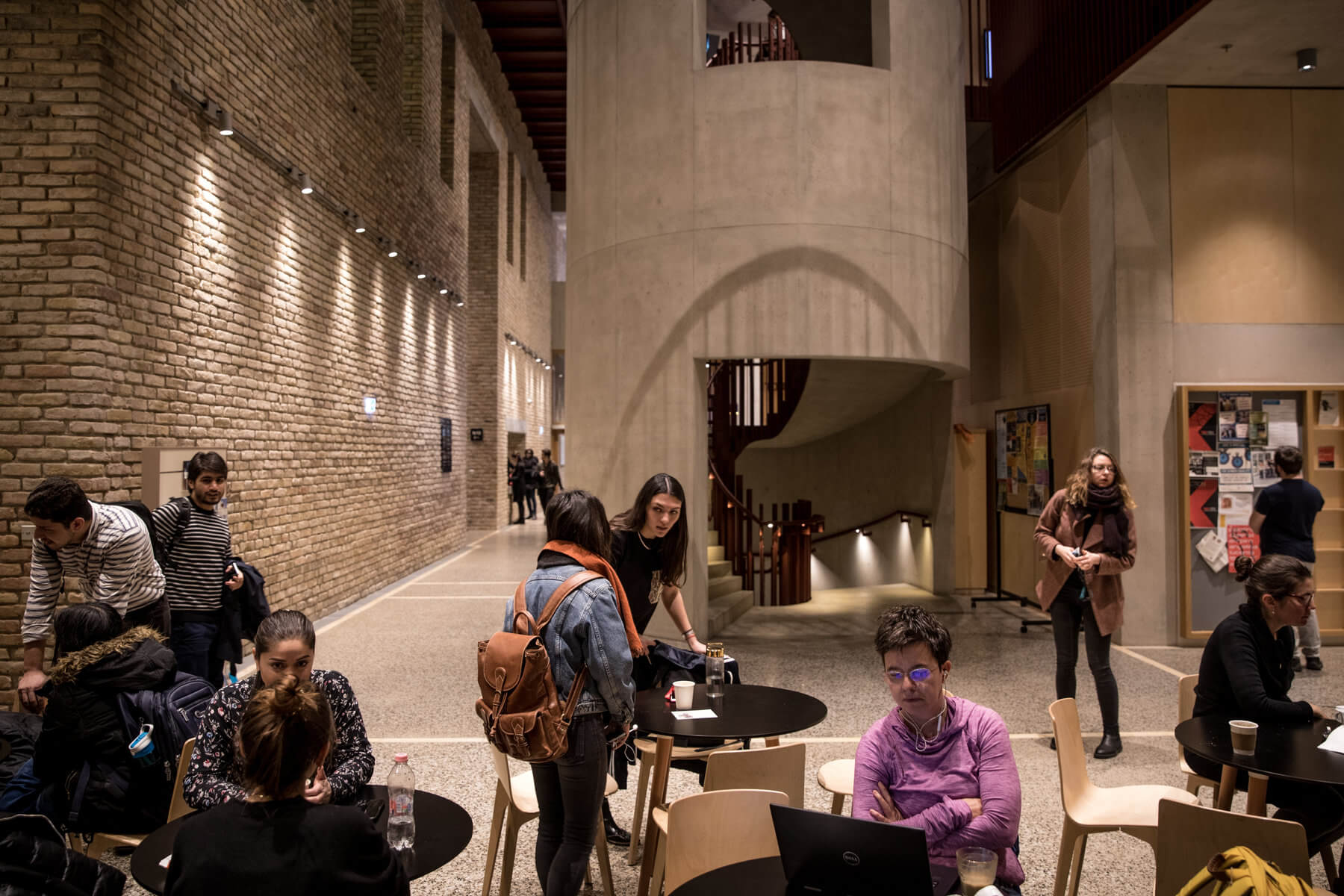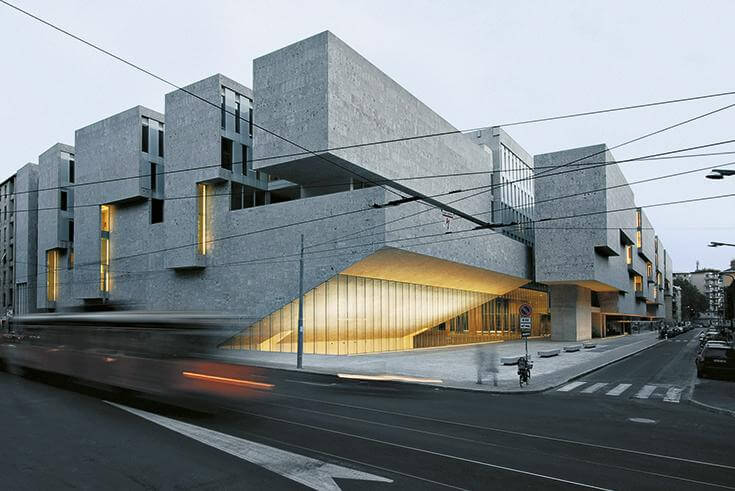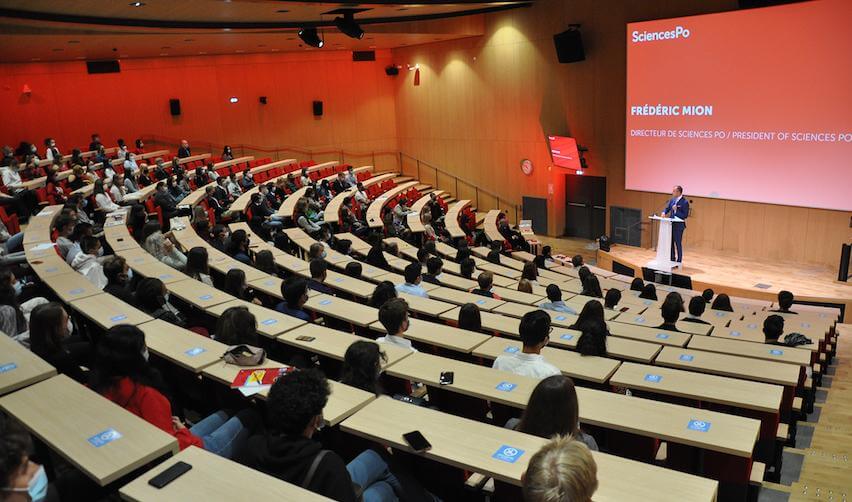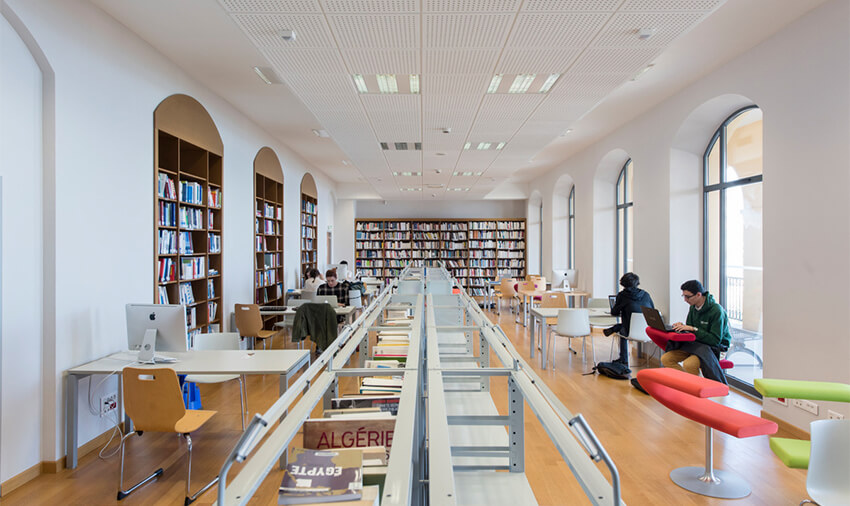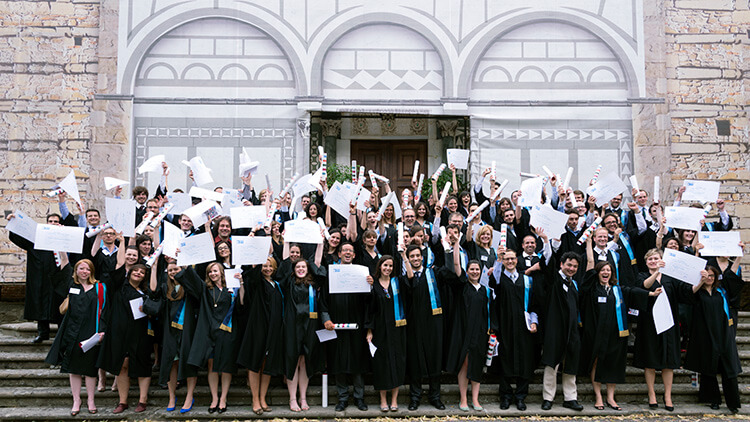About The Series
The CIVICA Data Science seminar series is the interdisciplinary forum of the CIVICA European University of Social Sciences, and alliance of eight leading higher education and research institutions. We foster a community of researchers, practitioners, and policy makers working to address complex societal challenges through the use of novel methodological and data-driven approaches, drawing from machine learning and quantitative methods from biology, sociology, political sciences, economics, and physics among others disciplines.
Shared among the partner institutions of the CIVICA network, this series directly addresses the data science research stream of the CIVICA initiative.
Where
During COVID19 travel restrictions, the series will take place online (e.g. using MS Teams or Zoom).
When
The seminar series will start with regular bi-weekly slots (Wednesdays every other week at 16.00 Central European Time) across regular academic year. The number of meetings can be expanded with the increase of partner institutions.
Seminar Schedule
Here is our tentative seminar series schedule in 2021
- All
- Spring 2021
- Fall 2021
- Spring 2022
- Fall 2022
- Spring 2023
- Fall 2023
- Spring 2024
- Fall 2024
- Spring 2025
How ‘Free’ is Free Speech in Academia? Effects on Researchers and their Research
Speaker: Dr. Lorenzo Palladini, Stockholm School of Economics
Date: Wednesday, 29 January 2024
Honest Computing
Speaker: Florian Guitton, Imperial College London
Date: Wednesday, 11 December 2024
Generating surrogate temporal networks from mesoscale building blocks
Speaker: Giulia Cencetti, CNRS
Date: Wednesday, 13 November 2024
What does it mean to understand AI?
Speaker: Jun Otsuka, Kyoto University
Date: Wednesday, 30 October 2024
Industrial Firm Becomes Digital and then Cognitive Enterprise
Speaker: Dr. Eleunthia Wong Ellinger, Stockholm School of Economics
Date: Wednesday, 16 October 2024
AI and Democracy
Speaker: Prof. Andreas Jungherr, University of Bamberg
Date: Wednesday, 12 June 2024
Emotion and reason in political language
Speaker: Prof. Gloria Gennaro, University College London
Date: Wednesday, 29 May 2024
The Opioid Epidemic Through the Lens of Reddit
Speaker: Dr. Duilio Balsamo, Bocconi University
Date: Wednesday, 15 May 2024
AI Accreditation and how this is impacting regulation, practice and standards
Speaker: Dr. Marie Oldfield, LSE
Date: Wednesday, 1 May 2024
Is Propaganda Front-Page News?
Speaker: Dr. Philine Widmer, ETH Zurich
Date: Wednesday, 17 April 2024
Distilling knowledge from diverse image data for urban planning and design
Speaker: Dr. Stephen Law, University College London
Date: Wednesday, 3 April 2024
Investigating Populist Rhetoric in Text: A Natural Language Processing Approach using (Large) Language Models
Speaker: Christopher Klamm, University of Mannheim
Date: Wednesday, 20 March 2024
The Language of Coordination, from Humans to AI Agents
Speaker: Prof. Luca Maria Aiello, ITU Copenhagen
Date: Wednesday, 6 March 2024
Digital Politics and Foreign Interventions: A Natural Language Processing Approach
Speaker: Ashrakat Elshehawy, Stanford's King Center on Global Development
Date: Wednesday, 21 February 2024
Misinformation exposure beyond traditional feeds: Evidence from a WhatsApp deactivation experiment in Brazil
Speaker: Prof. Tiago Ventura, Georgetown University
Date: Wednesday, 07 February 2024
Promoting the systematic use of real-world data and real-world evidence for digital health technologies across Europe: A consensus framework
Speaker: Dr. Divya Srivastava, LSE
Date: Wednesday, 22 November 2023
Data science for the Sustainable Development Goals: the case of food security
Speaker: Prof. Elisa Omodei, CEU
Date: Wednesday, 18 October 2023
CentralBankRoBERTa: A Fine-Tuned Large Language Model for Central Bank Communications
Speaker: Moritz Pfeifer & Vincent Philipp Marohl
Date: Wednesday, 27 September 2023
The Evolution of the Climate Discourse on Twitter: Polarization, Hypocrisy, and the Musk Takeover
Speaker: Dr. Max Falkenberg
Date: Wednesday, 13 September 2023
The Handbook of Computational Social Science for Policy
Speaker: Dr. Eleonora Bertoni
Date: Wednesday, 31 May 2023
Artificial Intelligence, Algorithmic Recommendations and Competition
Speaker: Prof. Giacomo Calzolari
Date: Wednesday, 03 May 2023
Exploring A New Model of Industry/Academic Collaboration: the U.S. 2020 Facebook and Instagram Election Study
Speaker: Prof. Pablo Barberá
Date: Wednesday, 19 April 2023
Using Multimodal Neural Networks to Better Understand How Voters Process Audiovisual Information
Speaker: Prof. Bryce Jensen Dietrich
Date: Wednesday, 22 March 2023
Models, mathematics, and data science: how to make sure we're answering the right questions
Speaker: Dr. Erica Thompson
Date: Wednesday, 08 March 2023
Introducing the Online Harms Observatory: AI powered mapping of online abuse in real-time
Speaker: Pica Johnsson
Date: Wednesday, 11 January 2023
Using Open Source Data Streams and Surveys to Improve Our Understanding of Elections
Speaker: Prof. Lisa Singh
Date: Wednesday, 02 November 2022
Does Epistemic Vice Explain Corporate Misconduct?
Speaker: Dr. Marco Meyer
Date: Wednesday, 19 October 2022
Becoming a data scientist: what it means to put data to work
Speaker: Prof. Anne Beaulieu
Date: Wednesday, 14 September 2022
The Making of a French Migration Crisis
Speaker: Dr. Michelle Reddy & Dr. Hélène Thiollet
Date: Wednesday, 15 June 2022
A New Approach to Visualizing Spatial Exposure Data for Comparing Earthquakes
Speaker: Prof. Stephanie Lackner
Date: Wednesday, 01 June 2022
Modeling Sustainable Development from the Bottom Up
Speaker: Dr. Omar A. Guerrero
Date: Wednesday, 04 May 2022
Internet Communities and the French Presidential Election
Speaker: Prof. David Chavalarias
Date: Wednesday, 20 April 2022
The Science of Success: Quantifying Outcomes in Social System
Speaker: Prof. Laszlo Barabasi
Date: Wednesday, 09 March 2022
Embedding Regression: Models for Context-Specific Description and Inference
Speaker: Prof. Arthur Spirling
Date: Wednesday, 23 February 2022
Information and Irregular Migration: Evidence from a Field Experiment in Nigeria
Speaker: Dr. Alexandra Scacco
Date: Wednesday, 09 February 2022
Adjusting for Confounding with Text Matching
Speaker: Prof. Margaret Roberts
Date: Wednesday, 26 January 2022
The Principles of Collective Learning
Speaker: Prof. Cesar A. Hidalgo
Date: Wednesday, 1 December 2021
More Than Words: How Political Rhetoric Shapes Voters' Affect and Evluation
Speaker: Prof. Christopher Lucas
Date: Wednesday, 3 November 2021
Serendipity or Confinement? Deconstructing Algorithmic Recommendation
Speaker: Prof. Camille Roth
Date: Wednesday, 20 October 2021
Framing a Protest: Determinants and Effects of Visual Frames
Speaker: Prof. Michelle Torrest
Date: Wednesday, 06 October 2021
Incentives and Covid-19 Vaccination Uptake
Speaker: Prof. Macartan Humphreys
Date: Wednesday, 08 September 2021
Using Public Video Cameras to Detect Racial Distancing on City Streets
Speaker: Dr. Melissa Sands
Date: Wednesday, 05 May 2021
How to Detect Fake News Before It Is Written
Speaker: Dr. Preslav Nakov
Date: Wednesday, 21 April 2021
Negotiating with AI: Fairness in the Labor Market
Speaker: Prof. Christo Wilson
Date: Wednesday, 07 April, 2021
Police Diversity to Prevent Violence: Does It Work?
Speaker: Roman Rivera
Date: Wednesday, 17 March 2021
Data Science in the Time of Covid and What Happens After
Launch Event
Date: Wednesday, 24 February, 2021
Hertie School Data Science Lab
The Hertie School Data Science Lab is a research and training hub that tackles societal challenges with computational and data-intensive methods. The Lab's mission is to foster, advance and promote excellence in data science research, education and application to enable better decision-making for the common good. Situated at the Hertie School, a private university at the heart of Berlin, the Data Science Lab prepares exceptional students for leadership positions in government, business and civil society, where they can leverage breakthroughs in data science and artificial intelligence to solve complex challenges of our world today.
LSE Data Science Institute
The Data Science Institute (DSI) forms the institutional cornerstone of the LSE's involvement in data science. Working alongside the academic departments across the School, the DSI's mission is to foster the study of data science and new forms of data with a focus on their social, economic and political aspects. The DSI aims to host, facilitate and promote research in social and economic data science through an annual programme of seminars, workshops and research projects delivered by a range of academic experts and research students.
CEU Department of Network and Data Science
The Department of Network and Data Science at the Central European University carries out research in network science, with a special focus on the foundations and applications of network science to practical data-driven problems. The Department offers a PhD Program and an Advanced Certificate Program in Network Science. Data science tools and the network science approach offer a unique perspective to tackle complex problems, impenetrable to linear-proportional thinking. A key element of the mission of the Department is to work across disciplines to bring network and data science tools to many fields of the social sciences, and related areas.
Bocconi Institute for Data Science and Analytics
The Bocconi Institute for Data Science and Analytics (BIDSA) was established in 2016 to promote and facilitate data-driven research at Bocconi University. BIDSA's aim is to promote and conduct theoretical and applied research that addresses challenging issues arising from the analysis of large-scale datasets and the modeling of the underlying complex phenomena while building a community of high-profile scholars to bridge the gap across Data Science disciplines and support the training of the new generation of data scientists by providing them with advanced statistical, mathematical and computational skills.
Sciences Po médialab
The Sciences Po médialab is an interdisciplinary research laboratory comprised of sociologists, engineers and designers, conducting thematic and methodological research to investigate the role of digital technology in our societies. These research approaches are developed jointly around four main themes: the digital public space, the environmental turn, technological futures and quantitative cultural studies. The médialab is a diverse research team, comprised of men and women with complementary skills. As members or partners of the laboratory, these social sciences, digital methods and design experts join forces and work together to develop research that draws on this diversity.
European University Institute Tech Cluster
The EUI Tech Research Cluster investigates the challenges of profound technological changes with the aim to assist policy makers. The Cluster adopt a global perspective but will focus on the EU’s ability to play a leading role, while preserving its fundamental values. The Cluster's events will engage engineers and computer scientists, academics in social sciences and leaders from industry, government and civil society to discuss which current issues would benefit most from interdisciplinary investigation.
Gallery
Check out the gallery of recent data science events at our partner institutions
F.A.Q
-
What is the aim for this seminar series?
The Data Science Seminar series is a multi-disciplinary series in applications and methodologies of data science focused on applications to the social, political, and economic world. Its aim is to allow researchers to share original, new work or work in progress in order to get methodological or technical comments and suggestions. The focus on the early stage work can potentially lead to collaborations both across partner institutions and with the institutions of invited speakers (if different). This will also differentiate the series from regular research seminars in partner institutions.
Shared among the partner institutions of the CIVICA network, this series directly addresses the data science research stream of the CIVICA initiative. -
Who is the intended audience?
We recognise that methodological and technical skills are heterogeneous, and that many disciplinary traditions are represented across partner institutions. Our focus will be on recruiting speakers working in data science within a particular field, but focusing on problems that are general enough to be of board interest across other fields. We expect that there will be considerable overlap between those presenting and those commenting on work in this series.
We also understand that talking about work in progress is more sensitive than presenting a completed work in a seminar, so one possibility is to make this more appealing is to ensure the meeting is 'closed' in some way, for example, in terms of the information participants may talk about freely outside the meeting.
Culturally, we aim to make these methodological discussions in a collegiate, non-threatening environment. Hence, privacy and gentility in commentary are important. The series will publish a code of conduct and ask all participants to agree to that code prior to participating. -
When is the seminar series scheduled for?
Initially the series will start with a regular monthly slot (e.g. first Wednesday of the month at 16.00 Central European Time) across regular academic year, i.e. approximately 10 meetings in a year. The number of meetings can be expanded with the increase of partner institutions.
During COVID19 travel restrictions, the series will take place online (e.g. using MS Teams or Zoom). The series can subsequently be moved to in-person meetings rotating across partner institutions or a hybrid system (in-person with online streaming). The cost of the meeting in this setting will be covered by CIVICA or the partner institution.
Schedule of speakers will be done in discussion between partner institutions, with each partner nominating equal number of speakers in proportion to the number of scheduled seminar slots for the year. Nomination of next year’s speakers and scheduling should be complete before the end of the current year’s seminar series. -
What is the format for the seminar series?
The seminar series may follow two formats.
In the first, the presentation is structured as a discussion of work circulated and read prior to the meeting taking place. In this “reading seminar” format, authors circulate a brief note or their draft paper beforehand, as well as possible discussion points on which they are seeking feedback, such as how to measure a key concept, find data on a particular topic, or identify the strengths and weaknesses of a particular method, tool, or research design. The authors are welcome to present this during the meeting to start the discussion and the group then jointly discusses this aspect of the problem. When circulating the materials, the authors also mention what they would like to get out of the discussion, which helps to streamline the conversation on the day.
The second format would be more of a classical seminar where new work is presented, and is followed by a Q&A session.
The series would alternative between the two formats, making adjustments based on feedback from the first term of experience with the two formats. -
What are the benefits of participation?
The intended advantages for the author are a) to discuss their work with an audience outside their immediate subfield, and b) to get focussed comments and suggestions on a part of their work that, while important, would normally be secondary to and in the background of their normal research process. The intended advantage for the audience is a) to be exposed to more of the research happening across partner institutions and beyond, b) to identify new and interesting methodological and technical challenges in perhaps unfamiliar substantive areas, and c) create opportunities for research collaborations.
-
How do I participate?
If you are a researcher at one of the institutions within the CIVICA network, information should be made available by the coordinator at your institution. Alternatively, you can sign up for the newsletter below to keep up-to-date about the seminar series.
Newsletter
Stay in touch with our seminar series and sign up here.

